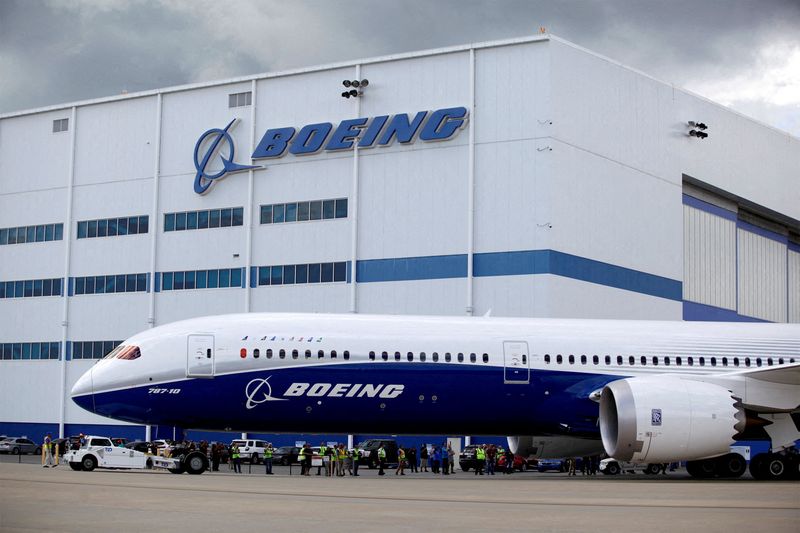WASHINGTON - Boeing (NYSE:BA), in collaboration with the U.S. Department of Transportation and the Federal Aviation Administration (FAA), has taken a significant step towards environmental sustainability by spearheading an initiative to increase the use of Sustainable Aviation Fuel (SAF) across Asia-Pacific Economic Cooperation (APEC) nations. This move aligns with the International Civil Aviation Organization's (ICAO) goal of achieving net-zero carbon emissions by 2050.
The aerospace giant has outlined a comprehensive strategy to overcome the current limitations of SAF, which currently accounts for only 0.1% of international jet fuel consumption. Recognizing the urgent need to scale up SAF supplies, Boeing's Chief Sustainability Officer Chris Raymond highlighted the importance of this initiative for meeting environmental targets in aviation.
The strategy focuses on several key areas to promote SAF usage:
- Identifying and securing sustainable feedstock sources essential for increasing SAF production.
- Leveraging existing industrial frameworks to facilitate SAF integration into the market.
- Developing policies that encourage the adoption of SAF by APEC nations.
- Implementing book-and-claim systems for accurate carbon accounting, which will help track and validate emission reductions from SAF usage.
Boeing is not only advocating for policy changes but is also actively involved in various collaborations to educate stakeholders about sustainable aviation fuels. These efforts include researching innovative technologies alongside Zero Petroleum, exploring bio feedstock opportunities worldwide, supporting Japan's ACT FOR SKY program for domestic SAF commercialization, and aiming to ensure its fleet is fully compatible with SAF by 2030.
The company has already made substantial progress by incorporating over 7 million gallons of SAF into its commercial operations. This initiative within APEC, supported by the U.S., represents a broader commitment to sustainable energy practices and is part of Boeing's participation in the World Energy Council's initiatives.
Through these efforts, Boeing and its partners aim to empower APEC member states with the tools and knowledge necessary to transition towards a more sustainable aviation industry, thereby contributing significantly to global efforts to reduce carbon emissions in air travel.
InvestingPro Insights
As Boeing takes strides toward environmental sustainability, it's essential to consider the company's financial health and market position. According to InvestingPro, Boeing, a prominent player in the Aerospace and defense industry, has experienced accelerating revenue growth, with a 23.34% increase over the last twelve months as of Q3 2023. However, the company has been grappling with weak gross profit margins at 11.44% during the same period.
InvestingPro data reveals that Boeing has a market capitalization of 124.99B USD, despite a negative P/E ratio of -43.96, indicating that analysts do not anticipate the company will be profitable this year. This is further backed by the fact that the company has not been profitable over the last twelve months.
InvestingPro Tips suggests that investors should be aware that Boeing is trading at a high EBIT and EBITDA valuation multiple. Furthermore, it does not pay dividends to shareholders, which might be a crucial factor for income-focused investors.
For more insights and tips, consider the InvestingPro subscription, now available at a special Black Friday sale with a discount of up to 55%. With InvestingPro, you get access to hundreds of additional tips that could help you make informed investment decisions.
This article was generated with the support of AI and reviewed by an editor. For more information see our T&C.
